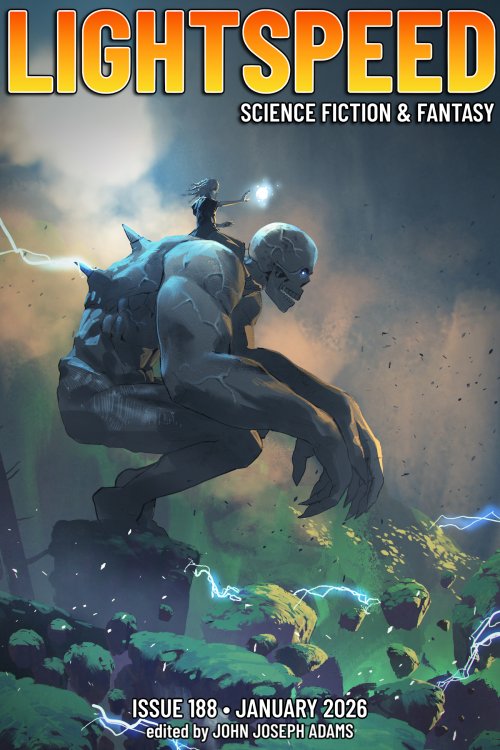I’ve seen stories with android replacements, and I’ve seen stories with nanobot healing, but I don’t think I’ve seen a story with both. I loved the interplay between these two futuristic ideas. What inspired this combination?
So, this story is actually in the same universe as another story of mine, “The Nearest Thing” [Lightspeed, August 2011], but in “Small Medicine” I wanted to explore a wider world. And I’m fascinated by the ways in which personal technology asks so much of us. (There are more invasive examples, but for me, the idea that your FitBit tracks your sleep is the most bizarre; you can discuss quantifiers all you want, but there is a little corporate-data computer on your wrist watching you dream, and I don’t understand the appeal.) But as a function of story, it means Sofia and Grandmother have to navigate a world in which they only seem to be able to make space for each other.
What is your usual process for writing a story, and did “Small Medicine” fit that pattern?
I actually don’t have a usual process. Sometimes I sit down and know exactly what I’m hoping to say and it’s like building a house. Sometimes I wander around a perfectly dark house turning on lights until eventually I can see what I’m standing in. With “The Nearest Thing,” I was irising out on everything, starting with the people who understand the most about what a Mori is capable of. In “Small Medicine,” no one involved will ever rise up against AI unfairness, or blow the whistle on sentience; they have no power in that sense. Their power is limited to the breadth of their own understanding, and I wanted to show that process.
It seems like this future society you’ve envisioned is determined to shortcut the experience of pain: Grieving, major diseases, even normal injuries, are swept away without much thought to the way this alters someone’s sense of identity. Is this a trend you are noting for the future, or are there present-day issues which brought the theme to mind?
I think that’s a very interesting observation, especially since my idea of the Moris was always less the curtailing of grief so much as a savagely indefinite suspension of it; a constant reminder you have something to grieve but without a loss to accompany it. The nanos are definitely part of a no-pain lifestyle, and one of the benefits of privilege, which Sofia encounters again and again, right down to a room that uses people’s memories as public examples of a job well done. All that privilege, still no control.
Initially, the end of “Small Medicine” felt abrupt to me, but then I considered what might happen next. I think Grandmother ultimately gets shut off, and Sofia either finds a way to destroy herself, or gets another “cure” that tamps down her desire for self-determination. Does that sound about right, or do you imagine a brighter future for either of those characters?
For a lot of my stories, I’m coming to realize, the pivotal point is not effecting outside change. The thing that can always change in a short time, in small ways, without us noticing, is ourselves. Whether this is Sofia’s grandmother or the Grandmother construct that knows the difference, she still loves Sofia. Sofia, who has had a fairly difficult time accepting what Grandmother’s existence means about her family and the burden it places on her, has stopped asking which of them loves her. So the story ends with Sofia and Grandmother as a unit; two people who know each other’s secrets and accept each other. There are still some aspects of this story I would be happy to continue someday—especially the fact that, at story’s end, two functionally immortal people have decided to join forces. But for me, there was no better place to leave them than there in the dark, together.
What are you working on lately?
I’m putting together a short story collection, which is a terrifying process, and—likely to counter that—I’ve started a new novel. Right now, I’m still wandering the dark house, but hopefully I can turn some lights on soon.
Enjoyed this article? Consider supporting us via one of the following methods:










